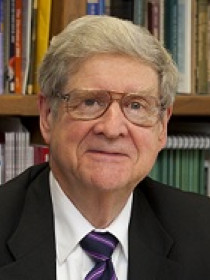
Max J. Skidmore
Connect with Max
About Max
Skidmore teaches courses in the politics of Social Security and health care at University of Missouri-Kansas City. He is the author of books, articles, and chapters on social insurance. Skidmore is also a member of the Commission on Aging of Mid-America Regional Council (the local AAA); speaks widely on Social Security, Medicare, and the Affordable Care Act; participated in the recent National Committee to Preserve Social Security and Medicare’s White House Summit for Community Leaders; and will also be a participant in the forthcoming AARP national forum on Social Security. He is also the founding editor and current editor-in-chief of the peer-reviewed journal: Poverty and Public Policy: a Global Journal of Social Security, Income, Aid, and Welfare.
Contributions
Misinformation Campaigns in the Long War to Undermine Social Security
Should We Cut Social Security to Reduce the Deficit?
In the News
Publications
Uses a review of Joanathan Gruber’s innovative graphic presentation, "Health Care Reform," to launch an essay examining the cant that pervades discussions of health care today. The essay documents the existence and nature of the deliberate campaign to distort public understanding of the subject, and explores the history of that propaganda campaign.
Discusses the principles of Social Security that counter the prevailing misinformation. Identifies a dozen or so works of the last decade and a half that demonstrate errors in the conventional wisdom.
Examines the political history of health care legislation in the United States in an essay that includes – but is not limited to – a review of "Health Care Reform and American Politics" by Lawrence Jacobs and Theda Skocpol.